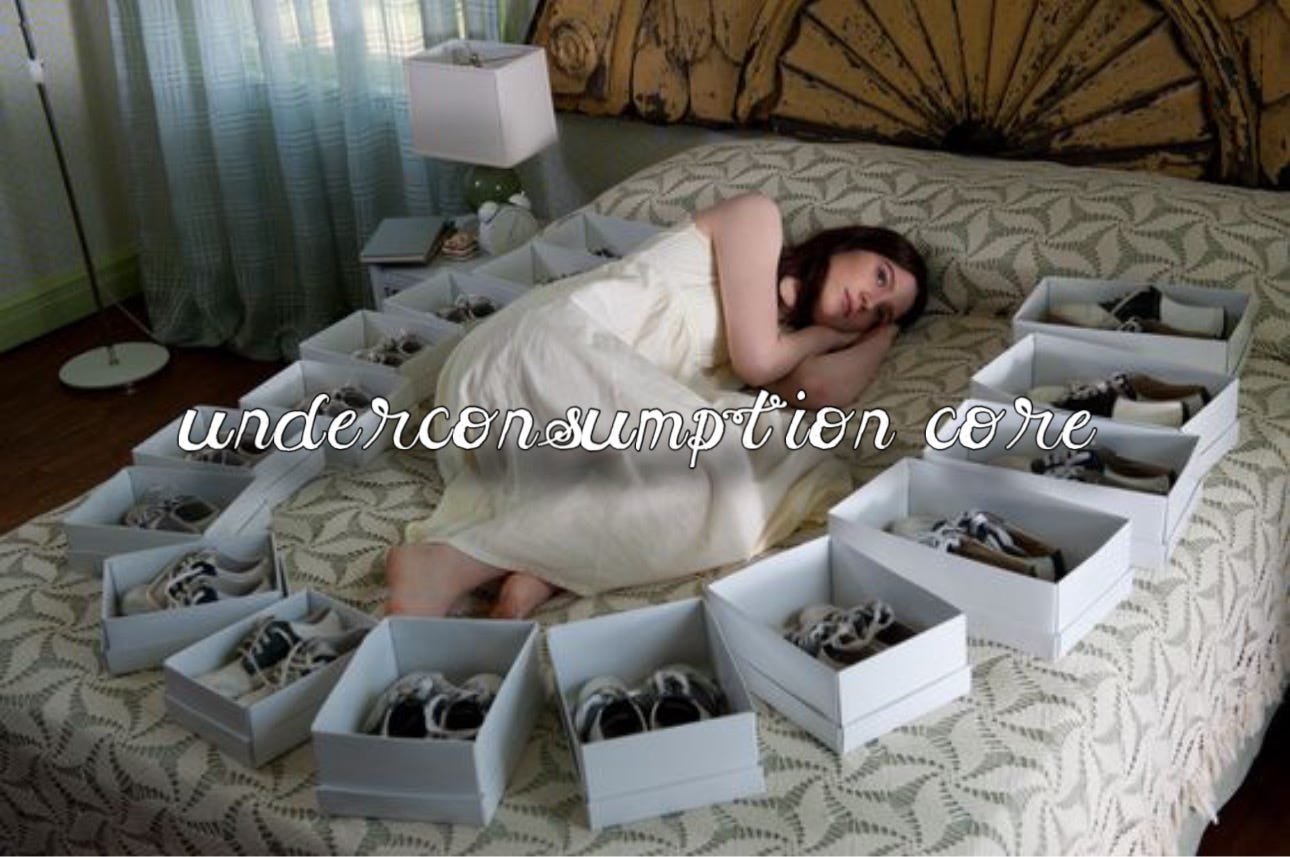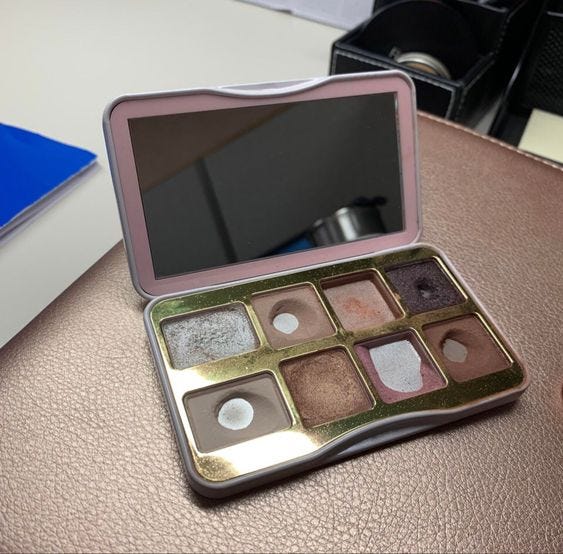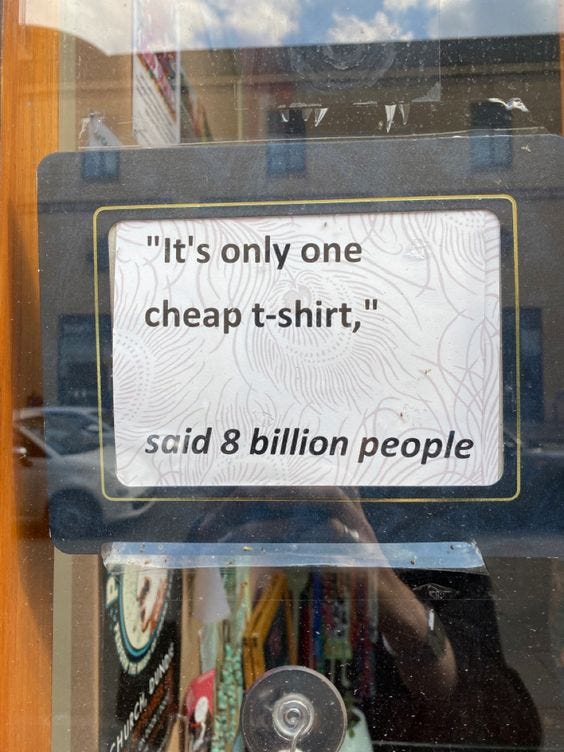'underconsumption core' is just realistic consumption
'underconsumption core' is trending on TikTok and i have weird feelings about it
When I hear Norah Jones' 'Don’t Know Why' on my FYP, I feel like cutting a front fringe and reading a book alone in a cafe, reminiscent of an alt 2000s twee girl. However, as a Hijabi Muslim woman with social anxiety in 2024, the accompanying TikTok trend evokes mixed emotions in me.
Underconsumption, to me, aligns with a sustainable lifestyle and ethically focused buying decisions. Yet, the trend ‘underconsumption core’ often showcases minimal makeup kits or small shoe collections, which I find slightly unsettling. What I perceive as a normal level of consumption is portrayed as underconsumption. In our obsession with trends, influencers, and brands pushing excessive consumption, having only a few items somehow equates to living a slow Norah Jones listening life.
As an influencer myself (cue jump scare!), I am well aware of what overconsumption looks like. While I would love to portray a minimalistic, slow-paced lifestyle, my career revolves around capitalism and constantly promoting the latest products. PR packages often include a multitude of products in various shades and colours, and through brand collaborations, I've accumulated an excess amount of shoes, clothes, and accessories over the years.
Despite making efforts to donate, give away items to family and friends, or sell on platforms like Depop, I recognise that I own more than I need, which isn't "normal." For instance, my husband sticks to one face wash and one pair of work shoes, whereas I have taken up half his wardrobe in addition to my own. I own outfits worn once to work events and shoes adorned with bows and strawberries that haven't even seen the light of day.
I believe influencers like myself can play a role in shaping how younger generations perceive a typical lifestyle. I mean if i wasn’t self aware it would be hypocritical of me to have this conversation. It's crucial to be transparent about what we do with our possessions and emphasise that excessive consumption is neither normal nor sustainable. This transparency could eventually pressure brands to rethink their approach, perhaps sending fewer, more personalised PR packages with less waste, shade-matched makeup, or allowing influencers to choose items they genuinely appreciate.
When I first started in the industry, I found the large amount of 'freebies' to be incredibly exciting. Don't get me wrong—I still do because I'm a true fashion and beauty lover. However, growing up with two other sisters, I often found myself sneaking into my mum's and older sisters' stuff, Having so much makeup and beautiful dresses without having to save up for them felt like a dream.
I was asked on my Instagram by a follower for tips on working to not being ‘an overconsumption girlie’. I replied that the first step is acknowledging it—recognising the issue is a crucial first move. Beyond that, my advice includes shopping second-hand and donating to slow down the fashion cycle.
Another important tip I shared is to unfollow online influencers who promote mass consumption, capitalism, and especially those who collaborate with fast fashion brands. From personal experience, I know influencers often receive substantial payments to endorse unethically made and poor-quality pieces that are also very affordable. While these items may bring immediate joy due to their accessibility, they often end up accumulating in your wardrobe until the next cycle of advertisements for new fast fashion pieces. This pattern also applies in the beauty and skincare industries, where there's always a new blush or eye cream promising to be better than what you already own.
I believe the intention behind the trend may have started from a good place, and overall, I appreciate the conversations it has sparked. Idealising normal consumption and living comfortably in a privileged environment where we have the means to buy more when necessary is understandable.
However, it may seem somewhat dramatic, but I struggle to imagine how someone in a war-torn country or living below the poverty line might feel when they see 'underconsumption core' videos where people thank each other for being open and honest about having less. For many, having even basic necessities can be a dream beyond reach.
The bottom line is, we all need a reality check. These conversations are essential, and I hope we continue to have them with empathy and awareness of global disparities.
I also have a podcast and did a conversational episode on this same topic if you’re interested to listen!!
Sincerely,
A fashion influencer with an identity crisis ✧.*






❤️
Oh, I love this!!!!